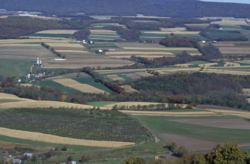Successful Farming | 10 January 2024
Arkansas: a case study on enforcement of foreign farmland ownership restrictions
By Cassidy Walter
In October 2023, Arkansas became the first state to enforce foreign farmland ownership laws when it ordered Syngenta to sell 160 acres of farmland.
Micah Brown of the National Agricultural Law Center says the state laws restricting foreign ownership of land are rarely enforced.
“Arkansas is really the first state that has enforced its law,” says Brown. “That’s why it blew up, and there was a lot of news coverage on it. Arkansas might be setting a precedent for other states, especially the states that enacted laws in 2023. We might see some of those states taking steps to enforce their law.”
Act 636, passed by the Arkansas General Assembly last year, restricts a “prohibited foreign-party-controlled business” from holding public or private land in the state, directly or indirectly. The definition of a “prohibited foreign party” includes entities with a connection to a country subject to the federal International Traffic in Arms Regulations (ITAR). China is subject to ITAR.
In addition to an order last year from the Arkansas state attorney general to divest 160 acres, Syngenta Seeds, part of ChemChina, a state-owned company, was issued a fine of $280,000, which was paid the next month. The fine was for failing to comply with a state law requiring disclosures filed with USDA in compliance with the Agricultural Foreign Investment Disclosure Act to also be filed with the state in the same time period.
Justin Wolfe, president of global seeds for Syngenta, says the company was blindsided by the state’s announcement and had already started working on a plan to divest the land within the two years granted by the law.
“Our goal is to continue to do work to benefit U.S. farmers and strengthen American agriculture and ensure that the U.S. is more innovative and competitive in order to participate in a global marketplace, not less,” he says.
He says products must be tested in the United States to be sold here, so Syngenta already submits to oversight from the Committee on Foreign Investments in the United States (CFIUS) to ensure the company can continue its U.S. research. CFIUS helps the president review foreign investments and acquisitions of American companies and real estate and determine whether a transaction presents a threat to U.S. national security.
Furthermore, Wolfe says local climate and soil conditions are vital to the success of new seed hybrids and varieties. Syngenta owns a total of 1,500 acres across all of the U.S. for this very purpose.
“You can’t test products in Iowa that fit in Arkansas — it just doesn’t work,” Wolfe says. “So we think this situation of us having to potentially pull out of that area actually doesn’t help Arkansas farmers.”
The company is considering all paths forward to legally continue operation in Arkansas. Attorney General Tim Griffin’s office did not return requests for comment.












